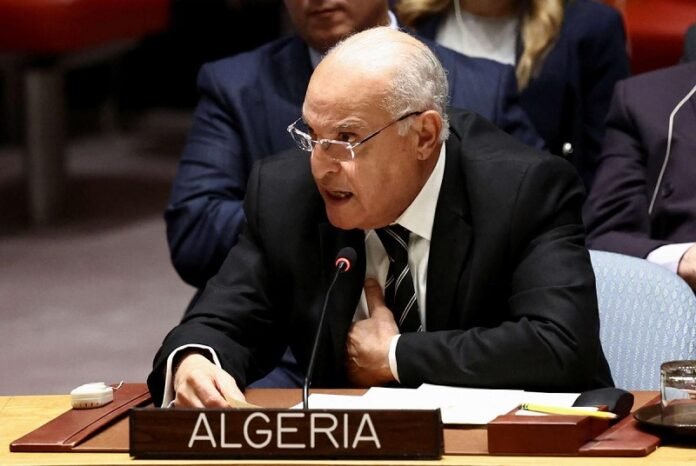It seems that Algeria has received a new diplomatic blow after failing to introduce amendments to a U.S. draft resolution on the Moroccan Sahara. This failure reflects Algeria’s growing political isolation on the issue, as its proposals, which included expanding the mandate of MINURSO to monitor human rights in the Sahara, were clearly rejected by the United States and France, both of whom support Morocco’s autonomy proposal.
Why does Algeria insist on these amendments?
Observers believe that Algeria’s moves aim to redirect the course of the issue in a way that serves its vision; however, its positions appear to contradict U.N. resolutions that call for a “realistic and acceptable political solution.” This raises the question: Why does Algeria persist in imposing its vision despite the broad international recognition of autonomy as a practical and realistic solution?
France and the U.S.: Steady support for Morocco and a blow to Algerian maneuvers
The rejection of Algeria’s amendments by the U.S. and France reflects a clear commitment to supporting effective diplomatic solutions initiated in 2007, with an emphasis on Morocco’s role as a strategic partner.
Does this position strengthen Morocco’s stance on the international stage and call on Algeria to reassess its policy on the issue?
The “roundtable” mechanism: Stalled by Algerian intransigence
While the Security Council has called for the resumption of “roundtable” negotiations “without preconditions,” Algeria continues to hinder the process by proposing bilateral negotiations between Morocco and the “Polisario.”
This comes despite the fact that the roundtables are the only means to involve all parties, including Algeria, which is the main funder and supporter of the Polisario Front.
Does this Algerian refusal reflect an attempt to avoid multilateral negotiations that could expose the isolation of its international position?
Macron’s statement supporting Morocco before the Moroccan Parliament: A new turning point?
In a move confirming the depth of the Moroccan-French alliance, French President Emmanuel Macron announced before the Moroccan Parliament that France supports Morocco in international institutions.
This statement comes after the U.S. recognized Morocco’s sovereignty over its Sahara in 2020, putting Algeria in a difficult position in the face of deep strategic alliances supporting Morocco’s vision.
How will Algeria respond to this growing support for Morocco in international organizations?
Could the “Polisario” be classified as a terrorist organization?
Amid increasing calls to classify the “Polisario” as a terrorist organization, Algeria seems to be in a defensive position, especially after several countries have reduced their support for the front. This raises questions about the future of its support for the “Polisario” in light of international pressure.
How will Algeria deal with these calls? And will this lead to a reduction in its support for the front?
In conclusion: Will Algeria respond to calls for dialogue?As Algeria’s international isolation on the issue deepens, it appears that Morocco has succeeded in strengthening its position through its support for a political solution and the autonomy plan.
The question remains as to how Algeria will respond to U.N. calls to resume talks without preconditions.


